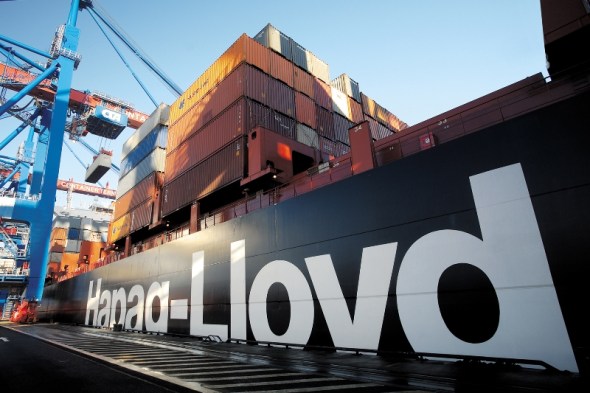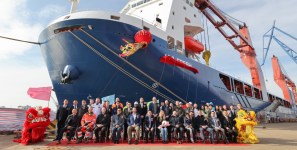Hapag-Lloyd Invests $4 Billion in 24 Dual-Fuel Containerships to Propel Decarbonization Goals
German shipping giant Hapag-Lloyd has committed to a $4 billion investment in 24 new dual-fuel containerships, ordered from China’s Yangzijiang Shipbuilding Group and New Times Shipbuilding Company Ltd. The fleet upgrade, set for delivery between 2027 and 2029, will add 312,000 TEU in capacity, with 16,800 TEU vessels from Yangzijiang and 9,200 TEU vessels from New Times Shipbuilding.
Read also: Environmental Groups Push for Decarbonization of Maritime Shipping to Combat Pollution
Aligned with Hapag-Lloyd’s Strategy 2030, these advanced vessels will feature dual-fuel engines capable of running on biomethane, potentially cutting CO2e emissions by up to 95%. Additionally, the ships are designed to be ammonia-ready, signaling the company’s commitment to sustainable shipping and carbon neutrality.
CEO Rolf Habben Jansen noted, “A more efficient fleet will strengthen our competitive position, enabling us to provide a premium global service.” With long-term financing of $3 billion secured, this fleet renewal—alongside recent retrofits to methanol propulsion—embodies Hapag-Lloyd’s multi-fuel strategy and dedication to the Paris Agreement’s 1.5-degree target. By 2030, the company aims to cut greenhouse gas emissions by one-third from 2022 levels, with net-zero ambitions by 2045.
Hapag-Lloyd’s new orders come as it prepares to launch the Gemini Cooperation with Maersk in February, adopting a hub-and-spoke strategy across seven trade lanes. This partnership targets a 90% service reliability rate, significantly above the current industry standard of 53%, setting a new benchmark in shipping efficiency and reliability.





Leave a Reply